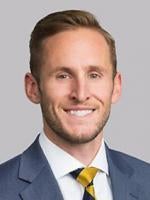Recently, the Department of Health and Human Services Office of Inspector General (“OIG”) released Advisory Opinion (“Opinion”) 24-02 regarding patient assistance funds provided by a non-profit charitable organization (“Requestor”). This opinion marks the latest in a string of advisory opinions which have approved similar patient assistance programs (“PAPs”). As highlighted in previous advisory opinions, OIG reiterates the importance of the charity’s independence from pharmaceutical manufacturer influence.
Overview of the Patient Assistance Funds at Issue
The Requestor—a 501(c)(3) nonprofit—offers financial support for patients with rare disorders (i.e., those affecting fewer than 200,000 Americans) to assist with out-of-pocket costs associated with treatment (“Disease Funds”). The Disease Funds provide (i) cost-sharing subsidies for prescription drugs and other items or services, (ii) financial support for medical expenses not covered by insurance, (iii) subsidies for insurance premiums, and (iv) emergency relief. Each Disease Fund:
- is specific to a clinically recognized disease state,
- is not narrowed to cover only specific treatments, drugs, symptoms, stages of a particular disease, or degrees of disease severity, and
- has a single donor, where each donor is a pharmaceutical manufacturer which manufactures or markets a drug to treat the disease state addressed by the Disease Fund.
Patients receive assistance based upon financial and medical eligibility, and the Disease Funds incorporate the following safeguards:
- financial eligibility is evaluated on a number of factors, including income, assets, number of dependents, cost-sharing obligations for expensive prescription drugs, and other costs necessary to treat the patient’s disease,
- medical eligibility is based upon a signed certification of medical necessity from the patient’s physician,
- patients are accepted on a first-come, first-served basis, as long as they meet financial and medical eligibility criteria and funding is available in the Disease Fund,
- neither Requestor nor any third party it contracts with arranges for only certain patients, such as those taking a donor’s drug, to receive assistance,
- eligibility is not contingent on the selection of a particular treating physician or pharmacy, the patient’s treatment approach, or whether the patient has been prescribed any particular drug,
- Requestor does not request information regarding what drugs, if any, a patient is taking or has been prescribed, and
- patients are accepted into a Disease Fund without Requestor knowing what drugs the patient may be taking or have been prescribed.
Qualifying patients receive assistance for up to twelve months with the possibility of renewals. All patients, regardless of whether they are insured by a federal health care program or commercial insurer, or lack insurance coverage, may participate in the Disease Funds.
Requestor and donors enter into written agreements which specify that the donor will not influence or control, directly or through affiliates, the delineation, establishment, or modification of Disease Funds. Additionally:
- Requestor does not establish, delineate, or modify Disease Funds at the request or suggestion of donors or their affiliates,
- decisions about which Disease Funds are created and what categories of assistance are provided to patients are made without influence by existing or potential donors,
- patients and providers are not notified of the identity of any donor supporting a patient’s Disease Fund,
- donors may not specify that Disease Funds be used only for prescription drug cost-sharing subsidies, and
- donors may not influence what type of drugs or other items or services their contributions will be used to support.
Donors receive only limited information and do not receive the following types information:
- individualized information about Disease Fund recipients,
- information about how funds from a Disease Fund are spent, including how much is spent on any particular drug, and
- information which would permit a donor to correlate the amount or frequency of its donations with the number of Disease Fund patients who use its products or services or the volume of its products supported by the Disease Fund.
Background of Applicable Law and Guidance
The federal anti-kickback statute (“AKS”) makes it a criminal offense to knowingly and willfully offer, pay, solicit, or receive any remuneration to any person to induce such person to purchase or arrange for any item or service reimbursable under a federal health care program.[i] “Remuneration” includes the transfer of anything of value, directly or indirectly, overtly or covertly, in cash or in kind. The evaluated arrangement implicates the AKS because drug manufacturers, through the Requestor, provide different categories of remuneration to patients, including federal health care program beneficiaries, who have been diagnosed with a disease that can be treated by a drug the donor manufactures.
The beneficiary inducement prohibition of the civil monetary penalties law (“Beneficiary Inducements CMP”) imposes civil monetary penalties against any person who offers or transfers remuneration to the beneficiary of a federal or state health care program that the person knows or should know is likely to influence the beneficiary’s selection of a particular provider, practitioner, or supplier.[ii] The arrangement does not implicate the Beneficiary Inducements CMP because a patient’s eligibility is not contingent on the selection of a particular physician or pharmacy, and therefore the arrangement does not influence an enrollee’s selection of a particular provider.
Analysis Under the Federal Anti-Kickback Statute
OIG first discusses its prior guidance on “purportedly” independent charity patient PAPs, noting the importance of these PAPs’ assistance to patients with financial need as well as its fraud and abuse risks. Such fraud and abuse risks include (i) the potential for improperly increased drug prices, which could trigger increased costs to federal health care programs, (ii) the steering of Medicare Part D enrollees to certain drugs, which can result in enrollees receiving less safe and effective drugs, and (iii) anti-competitive effects. OIG has historically warned that independent charity PAPs should be independent of pharmaceutical manufacturer influence, and the advisory opinion notes the risks associated with PAPs have been driven by OIG’s enforcement actions, appraisals of the Medicare Part D program, rising drug prices, and economic analyses of PAP operation.
OIG’s analysis of the Disease Funds under the AKS is also shaped by upcoming changes to cost sharing imposed on Medicare Part D enrollees. Beginning in 2024, Medicare Part D enrollees’ 5% cost sharing in the catastrophic phase has been eliminated, and beginning in 2025, enrollees’ annual out-of-pocket costs for Part D drugs will be capped at $2,000. Consequently, the cost-sharing subsidy features of the Disease Funds may be utilized less, which could impact the nature of Requestor’s donations, categories of expenses under the Disease Funds, and number of patients which meet financial need criteria.
Ultimately, OIG determined that the arrangement would not impose administrative sanctions on Requestor under the AKS for the following reasons:
First, Disease Funds vary in the proportion of funds spent to support the purchase of donors’ drugs. The arrangement also incorporates other safeguards previously noted by OIG as reducing the risk of fraud and abuse, specifically, (i) defining Disease Funds based on established disease states, (ii) awarding assistance without regard to the treatment regiment for a certain patient, (iii) limitations on information-sharing with donors, and (iv) a process to verify patient financial eligibility.
Second, the Disease Funds provide assistance to financial needs with rare disorders. The majority of the Funds support cost-sharing for items and services other than drugs, medical assistance, premium support and emergency relief, rather than the purchase of drugs manufactured by donors through cost-sharing subsidies.
Of note, due to the upcoming legislative changes described above to cost-sharing requirements imposed on Part D enrollees , this Opinion is only effective until January 1, 2027.
Key Takeaways
As highlighted in previous OIG advisory opinions evaluating charity PAPs, this opinion emphasizes the importance of independence and separation between the charity organization and the pharmaceutical manufacturer donor. This is, of course, underscored by OIG’s tongue-in-cheek use of the word “purportedly” when referring to prior guidance on independent charities. So, it goes without saying that pharmaceutical manufacturers contributing to such charity PAPs should ensure they have policies and procedures in place to ensure their donations maintain appropriate independence from the charity organization. Independence is of course increased when donors receive limited information from the charity PAP and charitable contributions are provided without consideration to a patient’s particular treatment regimen. But not only that—the opinion underscores the certification that neither the Requestor, nor any third party with which it contracts, arranges for only certain patients (e.g., patients who take a donor’s drug) to receive assistance. It is not entirely sure what “with which it contracts” means, but presumably could be read to sweep in the donors themselves and/or other third parties, like patient support hubs or other patient support entities. Bottom line—the more layers of separation between the entity providing and receiving the donation, the better.
Moreover, manufacturers should keep an eye out for funds designed around a clinically recognized disease state that are not narrowed to cover only specific treatments, drugs, symptoms, stages of a particular disease, or degrees of disease severity, and are otherwise open to all comers, regardless of insurance status. However, the opinion makes a very important forecast for the future by highlighting the importance of assistance beyond cost-sharing for drugs, such as medical assistance and premium support, and suggests the use of donor funds beyond cost-sharing for drugs may decrease fraud and abuse risk. This increased OIG scrutiny will likely be related to changes in annual out-of-pocket cost caps for Medicare Part D enrollees, thus pushing demand away from purely copay assistance to a more wraparound support that includes other aspects of care. The changes to categories of assistance provided by PAPs due to the new out-of-pocket cost caps may alter the risk-benefit evaluation by OIG of charity PAPs it has historically been wary of.
One final observation is OIG’s recognition that the arrangement does not implicate the Beneficiary Inducements CMP because a patient’s eligibility is not contingent on the selection of a particular physician or pharmacy, and therefore the arrangement does not influence an enrollee’s selection of a particular provider. This callout reaffirms that any manufacturer arrangement with a charity—vis a vis its patient support hub and/or specialty pharmacy, in the case of specialty drugs—should in no way include a transfer of information that could in any way indicate what medication(s) an enrollee is currently taking.
FOOTNOTES
[i] 42 U.S.C. § 1320a–7b(b).
[ii] 42 U.S.C. § 1320a–7a(a)(5).




 i
i


